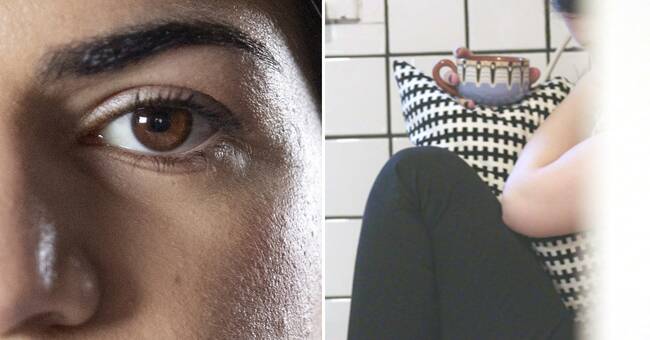The Hidden Girls of Honor - Part 2.
Aisha is pissed.
Not on her family who beat her all her life - but on society.
She has grown up with honor killings and torture-like beatings.
At the same time, she has withstood the pressure of getting married.
- Soc said that I was so brave, that I dared to trust them.
But I was burned.
Asiha believes that those who would protect her instead made her a perpetrator.
"Controlled by society instead"
SVT has examined the social services' efforts for young people who are exposed to serious violence by their families, in order to establish the honor of the family.
When Aisha was taken into care, she was sent to a locked state youth home, which is run by the Swedish Board of Institutional Care (Sis).
Not because she did something wrong, but because there were high walls so that the family could not break in.
- It is a shame in itself that the daughter is in community care, she is disloyal, she is disobedient.
What should we say to the relatives, it is disgraceful in itself.
So for that reason, you do your utmost to access her, says Devin Rexvid who researches honor killings and oppression.
"An emergency measure"
Aisha is not alone.
SVT's review shows that the social services on at least 20 occasions in recent years have placed young people at risk of honor violence at Sis homes just to protect them from their outreach relatives.
For example, when their homes have been cleared or when they themselves have chosen to escape or when they have been kidnapped back home.
- In general, I would like to say that we do not use Sis placements, it is an urgent measure, says the social director of the municipality responsible for Aisha's protection.
We can not publish which municipality it is because then the risk increases that Aisha can be found by her family.
Social services: The only way to protect
In a tape recording that SVT listened to, the social secretary tells Aisha that they chose to place her locked in a Sis home to protect her from relatives who would like to "take her".
- Voluntary efforts did not work.
They found you.
It was the only place that existed.
The only place that Sweden has to offer when it comes to locking up young people is Sis.
The boss has been allowed to take part in the recording but does not want to comment on how they reasoned in Aisha's case.
If the price is that young people lose confidence in you, is it worth it?
- It can be worth it, in that case you have to rebuild that trust.
SVT has reviewed almost 70 LVU judgments on honor killings and violence and found cases where the girls have stated to the court that they are so afraid of being locked up in Sis again that they would rather return home.
One of the girls was released and has since disappeared.
- You only change the oppression they have experienced.
They have been controlled in their home environment and are now controlled by society instead, says Johanna who runs a company that protects vulnerable children.
Has lost confidence
As for many others, the Sis placement led to Aisha escaping, and losing her last trust in the social services.
She is now hiding somewhere in Sweden.
Her social services still have no working solution.
- Is there something I will carry with me for life, it is the betrayal that soc gave me.
They took me from a home by force, from a controlled environment.
They placed me in a Sis home filled with violence.
You can not be more controlled than you are as deprived of liberty as I was.
Aisha is actually called something else.
Do you have your own story?
Contact SVT's reviewing reporters.

